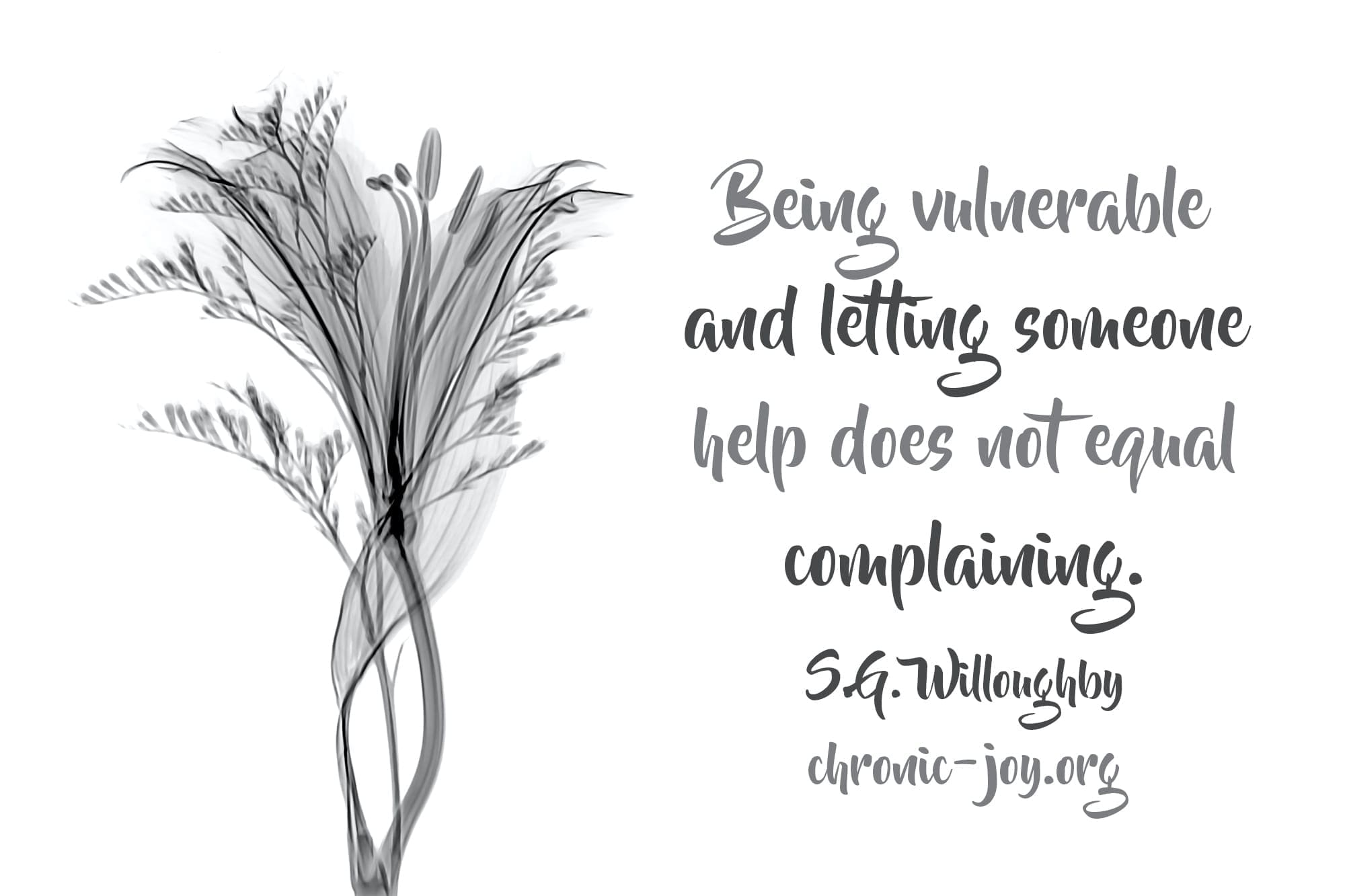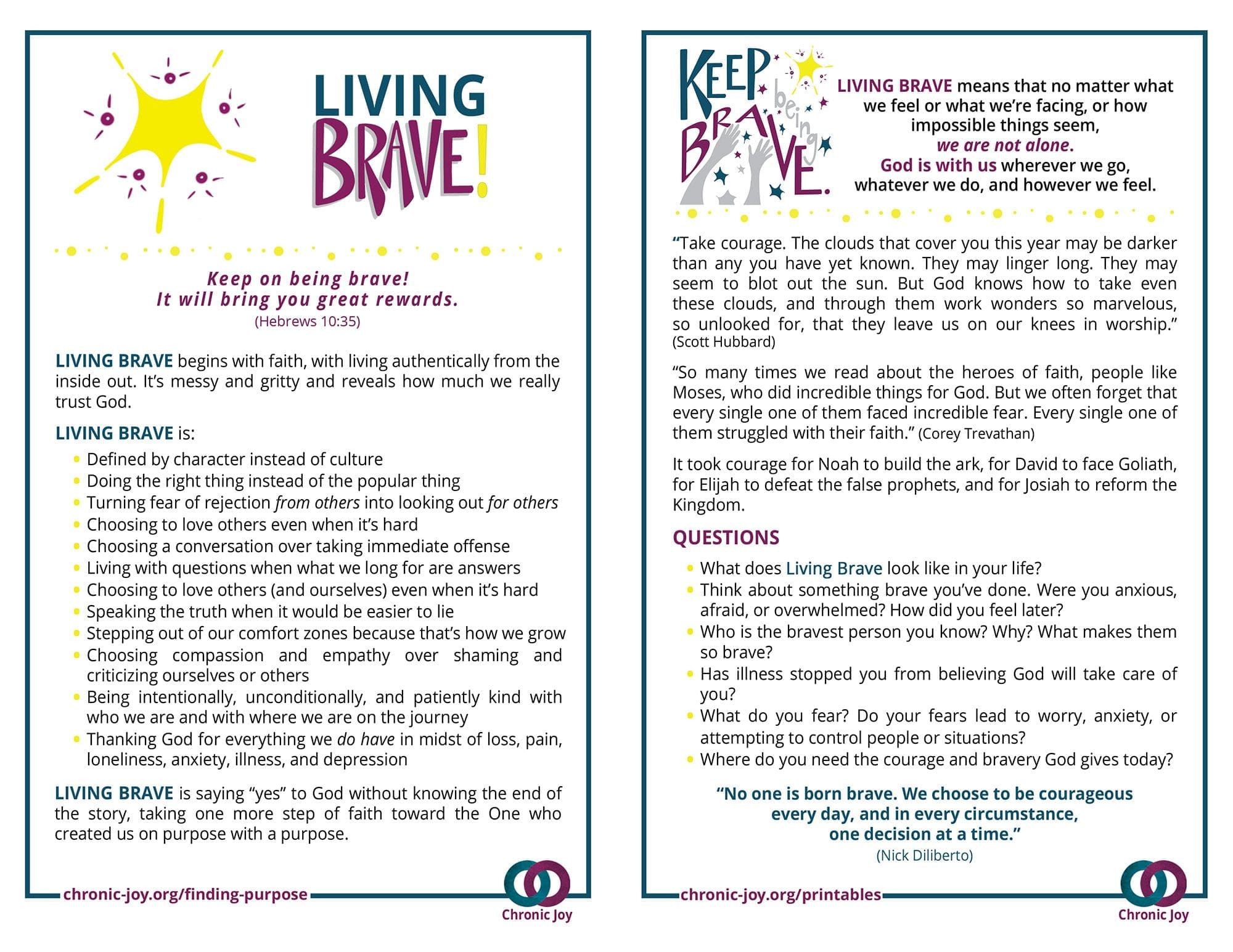
“Being vulnerable and letting someone help does not equal complaining.” S.G. Willoughby
VULNERABILITY IS NOT COMPLAINING
“How are you?” she asks as we walk.
“I’m doing better than last night.” Pulling my scarf up further and continuing, “I kinda hit a wall, and I still don’t feel great, but I’m hanging in there. How are you?”
She shrugs. “I’m not a complainer.”
I bristle. At first, I felt guilty, thinking of my own answer and how it could have sounded like I was complaining. Was I complaining? I probe my heart. No, I could honestly say I was just being factual. Once I determine this, I still feel frustrated, and I’m not sure why.
But today, the answer comes. I was frustrated that this girl didn’t think her “complaints” were worth being voiced because I knew she was not a complainer, and I honestly did want to know how she was. I wanted to support and help her, but she didn’t think she was worth it. Even if she didn’t think that consciously, it was what her words betrayed. At the very least, she didn’t want to burden anyone and, therefore, was standing strong on her own.
BE VULNERABLE – DON’T GO IT ALONE
Our culture likes a warrior who stands alone. I’ve taught Bible studies on the topic of standing alone. But the truth is, when someone “stood alone” in the Bible, they weren’t really alone. They had the God of angel armies at their backs and were part of a body of believers. When Paul stood alone, he still had Silas, Timothy, or Barnabas to support him. When Daniel took a stand and refused to eat the meat offered to idols, Shadrach, Meschach, and Abednego stood with him. And when Abraham left his family to obey God, Sarah went with him.
Let’s consider some fictional characters: when Bilbo faced Smaug, Balin walked through the tunnel with him; when Harry confronted Voldemort for the very last time, Ron and Hermione were right there with him in the fight; and when Katniss took a stand on the train platform, she was backed up by the entire resistance.
But we, as humans, seem to have a hard time with this concept and tend toward one extreme or the other. That is, we either focus so much on others that we don’t know how to tell someone how we’re doing, or we focus so much on managing our issues and explaining what’s going on in our lives that we overlook asking the person next to us how they are doing.
I’ve been guilty of both.
DARE TO BE VULNERABLE
Chronically ill warriors, I want you to know that being vulnerable and letting someone help does not equal complaining. You can let people in—even if you’re struggling, even if you don’t have one positive thing going on in your life, and even if your struggles are “not as bad” as someone else’s.
You are worth being vulnerable. Yes, you are worth helping — and your pain is worth voicing.
Of course, some of us really are complainers. We do have to learn balance. But as you discover the right time and place, please don’t isolate yourself more than your illness already does. Let people in. Let people stand with you, support you, and walk down the tunnel with you (like Bilbo), or help you write letters in prison like Paul.
There will be things we have to face without any human help, but we can be vulnerable—both to others and to God—without complaining. Vulnerability and complaining aren’t the same.
First published at sgwilloughby.com. Republished with permission.


S.G. Willoughby
Author and Chronic Joy® Ministry Partner
Sara is the author of He’s Making Diamonds: A Teen's Thoughts On Faith Through Chronic Illness and host of the annual Diamonds Conference for chronically ill Christians. She loves to write and adventure - be it a new board game with her family, trying a weird food, or diving into a fantasy book. Sara is a TCK, a Lymie, and a Young Life Leader.

Living Brave
Living Brave begins with faith, with living authentically from the inside out. It’s messy and gritty, and reveals how much we really trust God.

Recent Comments